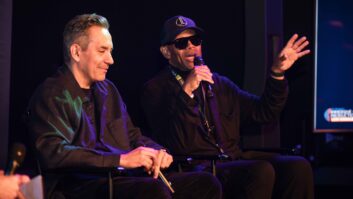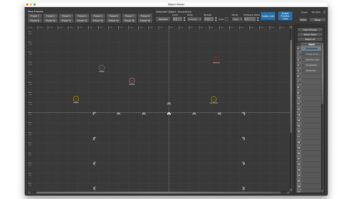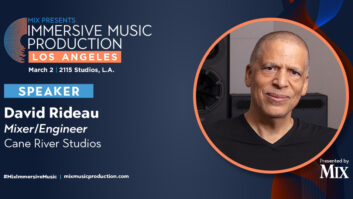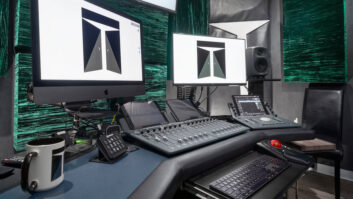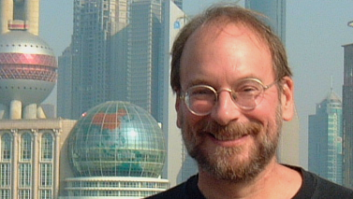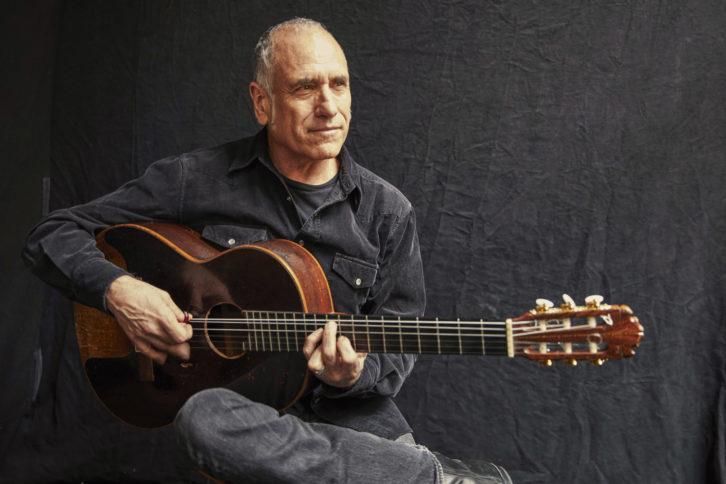
With roots in Israel, Spain and the UK, singer/songwriter David Broza has been fusing musical traditions and genres for decades. He’s recorded 14 albums in three languages, breaking down barriers along the way: His landmark 2014 album East Jerusalem, West Jerusalem (produced by Steve Earle) brought Israeli and Palestinian artists together as a united voice for peace.
On his latest album, however, Broza speaks only through his guitar. En Casa Limón (S-Curve), his first instrumental release, beautifully fuses flamenco, Mediterranean, and Latin jazz sounds, in the process revealing more of his versatility as a guitarist.
The idea for Broza to make an instrumental album came from the founder and CEO of the S-Curve label, Steve Greenberg. “He called me out of the blue and said, ‘Do you have enough instrumental pieces for an album?’” Broza recalls. “I said, ‘No, I don’t have any.’ He said, ‘Well, I think it’s time that you put out a guitar album.’
“I’m thinking, I’m not a guitarist; I’m a singer/songwriter, I’m an accompanist,” Broza adds. “So this particular album is very different for me. I had to develop my sense of melody to a different degree so that when I’m playing something on the guitar, it’s strong enough to capture my interest and to captivate an audience.
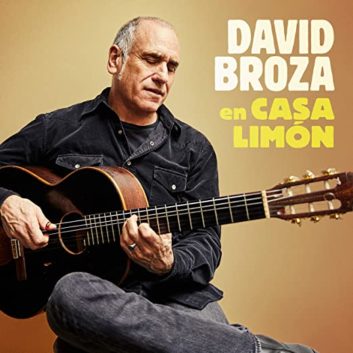 “Something I didn’t know about being an instrumentalist is the difficult emotional duress it takes,” he continues. “When you sing, your vocal cords are working with your body, your muscles are working and adrenaline kicks in. This was really new for me—letting the instrument speak for me—and it really affected my approach to the guitar. When I play my songs with a band, my right and left have very different intensities; my left hand is almost like a sledgehammer, hitting those chords, and my right hand is like a shadow—very light. But this music is a different animal. Everything is lighter.”
“Something I didn’t know about being an instrumentalist is the difficult emotional duress it takes,” he continues. “When you sing, your vocal cords are working with your body, your muscles are working and adrenaline kicks in. This was really new for me—letting the instrument speak for me—and it really affected my approach to the guitar. When I play my songs with a band, my right and left have very different intensities; my left hand is almost like a sledgehammer, hitting those chords, and my right hand is like a shadow—very light. But this music is a different animal. Everything is lighter.”
That all translated to the fact that writing the songs for this album took awhile; not only did Broza have to work and think differently to arrive at a collection of instrumental pieces that he felt happy to record, but then a mishap cost him months of work. His songwriting process includes capturing composition ideas to his phone, but a few months in, his cell needed a repair, and when he got it fixed, the songs were gone.
“I didn’t remember half of those pieces, and of course I was also touring and traveling all over the world, but I tried to concentrate on these pieces,” Broza says. “It took me a long time to reconstruct them!” Broza eventually re-created his beautiful pieces, and then he asked Spanish producer Javier Limón to produce the new album in Casa Limón studio in Madrid.
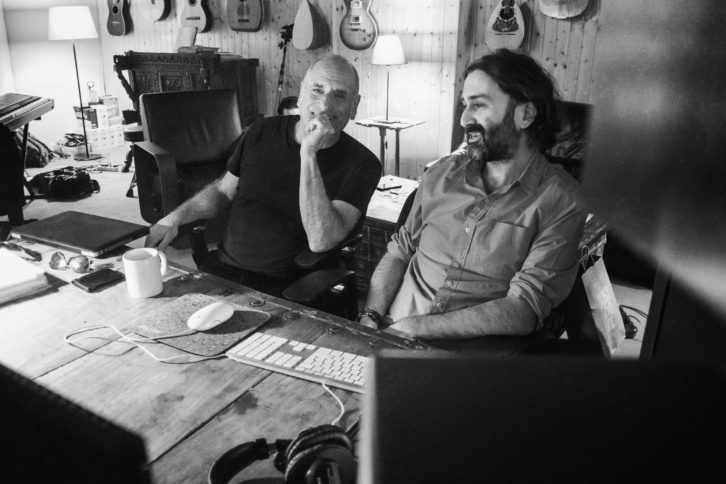
“David is probably the most important singer/songwriter in Israel,” Limón says. “When he told me he was thinking about doing an album playing guitar without singing, it was a little like if Bob Dylan said that, and I was surprised. But he is a great soloist, and when I heard his songs, I could tell they were amazing—full of his life experience, and he had so many beautiful ideas and hooks.”
The sound of Broza’s record comes from those hard-won songs, and from the guitars Broza played on the album, including a hand-crafted Spanish instrument built by luthiers Vincente Carrillo in the town of Cuenca and Manuel Contreras in Madrid. The album also includes support from a handful of musicians selected by Limón. Most of the tracks were engineered by Aurelio Estébanez.
“In my opinion, Aurelio is the best engineer in Spain,” Limón says. “He is young—in his 30s—but he is old-school in a technical way. He knows the digital stuff, of course, but it’s very hard to mix with the analog preamps and EQs that I like to use if you are not a really good engineer. This is a guy who can open a console and fix it if it’s broken.”
“We used an overdubbing recording style; each person played alone in the main tracking room of the studio,” Estébanez explains. “Only the electric bass [by Dany Noel] was recorded with an Avalon U5 DI in the control room.”
The engineer recorded Broza using a Neumann U67 microphone placed near the bridge and a KM184 pointed at the upper bout; those went through Neve 1083 vintage preamps into Pro Tools.
Estébanez offers a couple more details about the tracking process: “The cajón [by Israel Suarez ‘Piraña,’ who played a variety of percussion instruments] was recorded with a Neumann U87; harmonica was captured with a Shure SM58 and an Avalon M5 DI.”
“The main instruments are the guitar and bass; the other instruments are there to support the melodies and let the guitar breathe sometimes,” says Limón. “It makes everything easier on your ears. I would say it’s like water in a meal: Drink a little bit of water between bites of your main meal.”
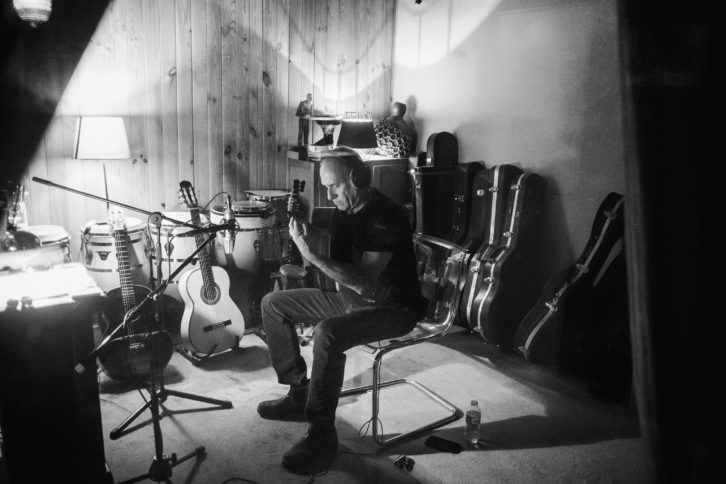
A few other instruments on En Casa Limón—including recorder by Tali Rubenstein and some violin by Layth Sidiq—were recorded in Boston, where Javier Limón is now teaching courses in Flamenco, composition, songwriting in Spanish, and studio production at the Berklee College of Music; the producer has a smaller personal studio there. But, given the album title, Broza clearly recognizes the sound of Casa Limón as the sound of the record.
“I first recorded in Casa Limón back in 2002 on Parking Completo,” he says. “Javier’s studio is on the outskirts of Madrid, in almost a blue-collar neighborhood. It’s a relatively small room, and what’s nice about it is, there are so many stories coming out of that room because Javier has worked with such amazing artists, but it is also very low-key and relaxed. You never feel like you’re in a corporate place. You feel like you’re at home because Javier is so welcoming. The album has a lot to do with his presence and the way he made recording an intimate experience.”
